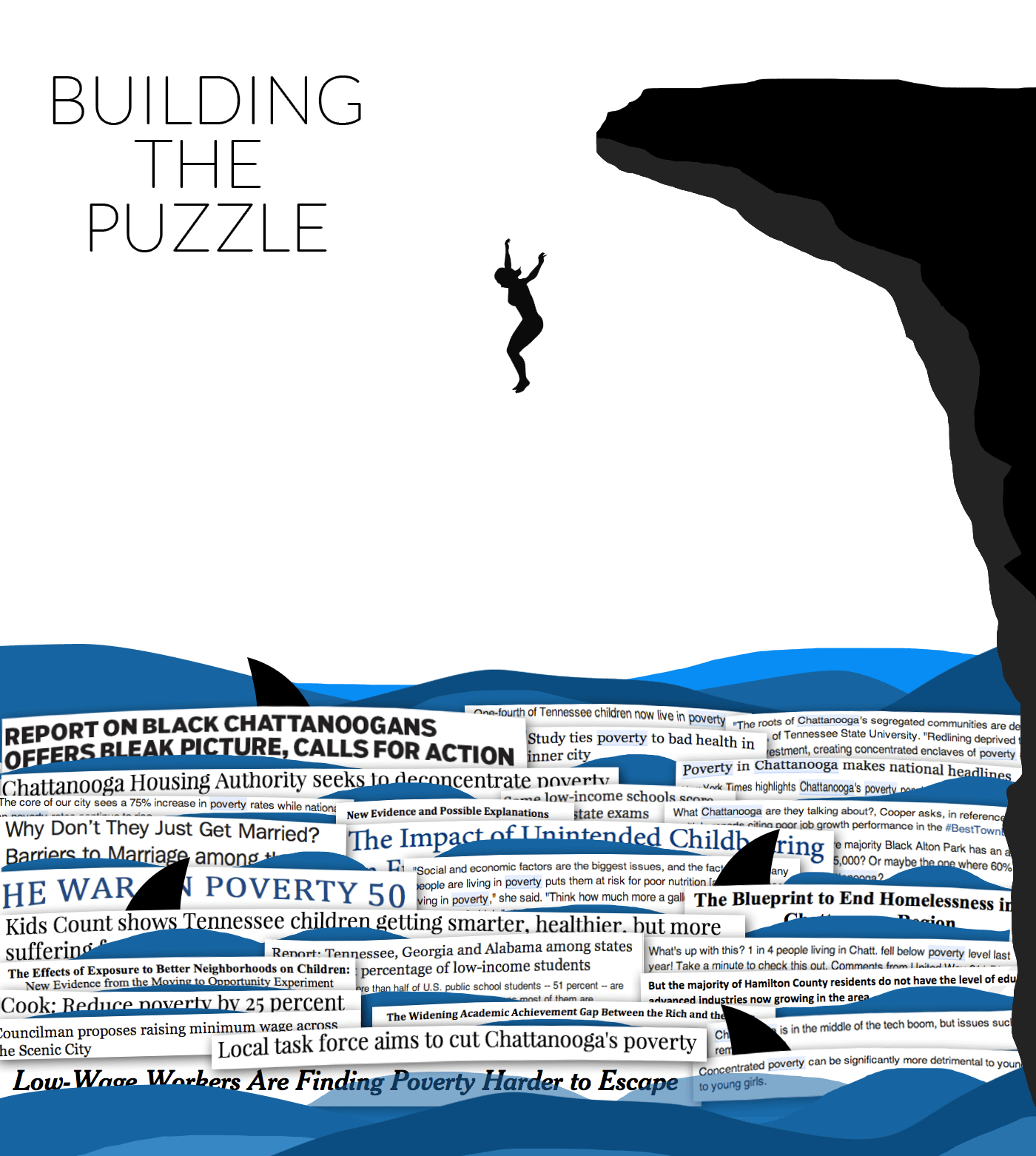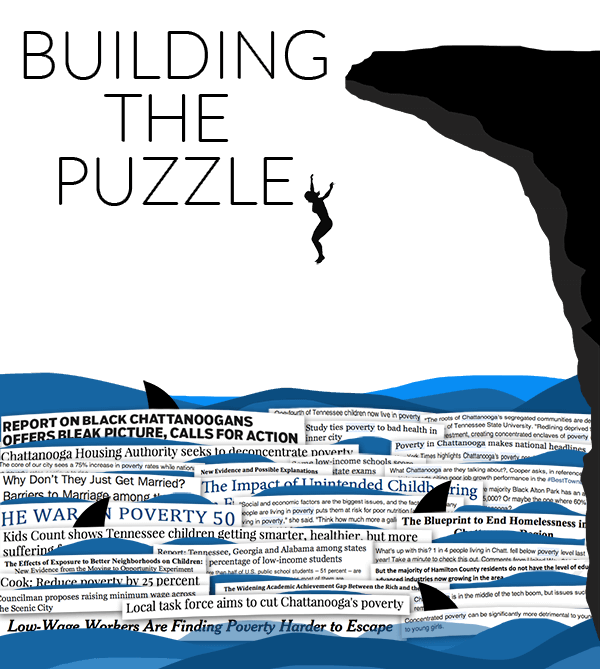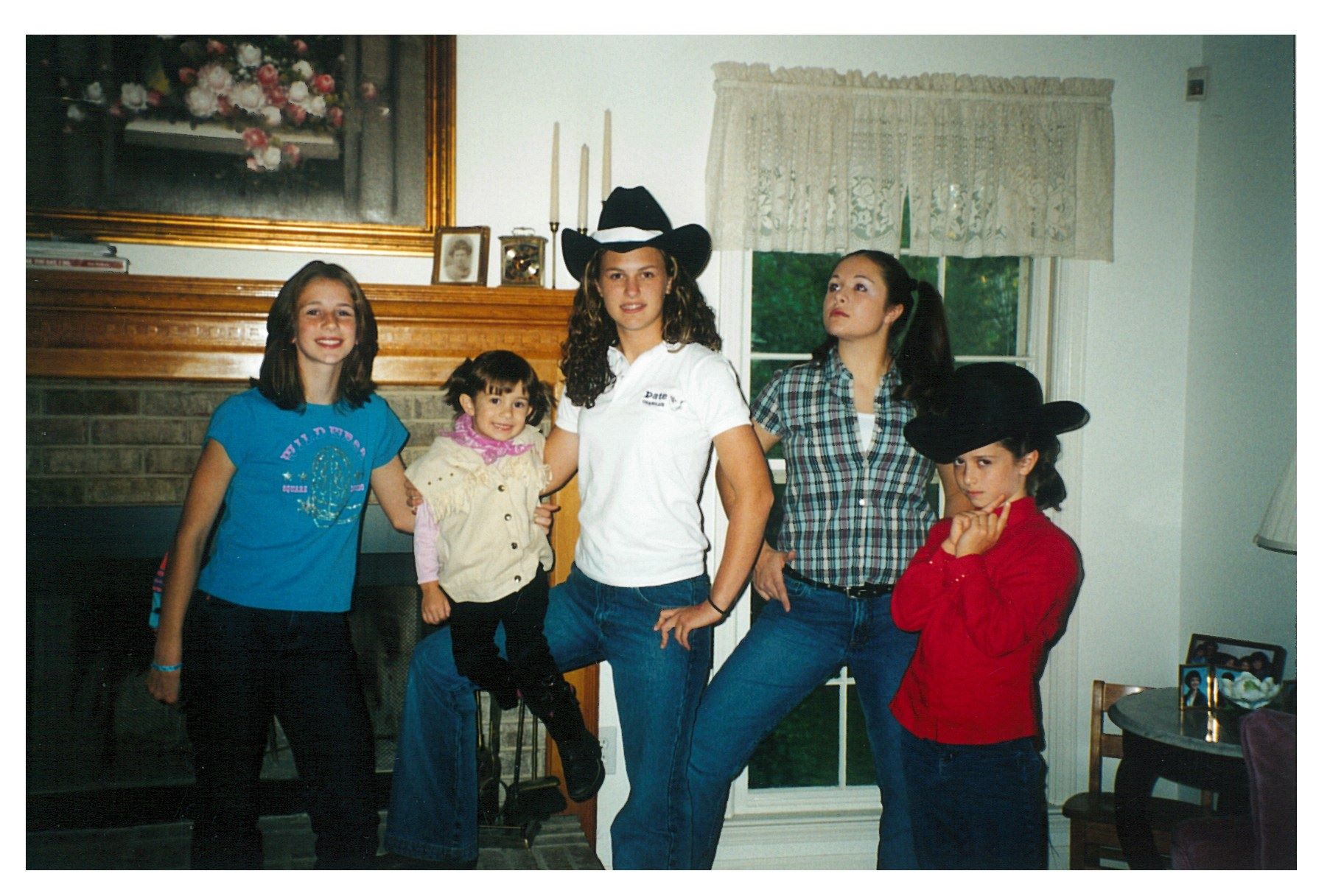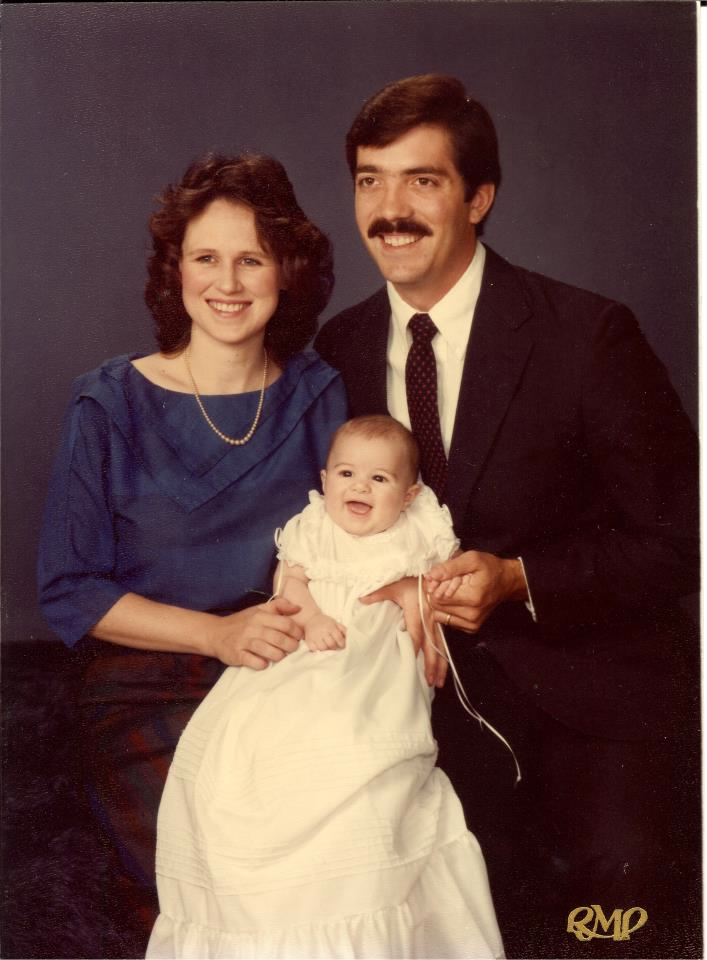

 here is a story behind every story, and this is mine.
here is a story behind every story, and this is mine.
I am the oldest daughter of two middle-class college graduates who home-schooled me and my four sisters in Birmingham, Alabama. Everyone called us the Garrett Girls, and we learned very early on that much was expected of us.
My father, a workaholic trying to earn enough to pay for his daughters’ college one day, held down a full-time job as an environmental researcher, while earning a master’s and a doctoral degree in engineering. He was gone so often, leaving the hard work of parenting and teaching to my mother, that I often cried and begged for him to stay home.
“He has to go be the breadwinner,” my mother would say, hoping to calm me down.
“We already have bread,” I’d snap back.
And when my father wasn’t poring over his work he was poring over the Bible. Often he woke up before the sun to memorize passages, hoping to still the inner murmur that told him he didn’t have what it took to provide for his big brood of girls.
In my house, faith translated through love of family and conservative politics. The billowing voice of Rush Limbaugh decrying the stain of Bill Clinton’s presidency inhabits most of my childhood memories. In the car to piano practice, Limbaugh was there. On the way to weekly Bible study, he was there. Scrubbing the kitchen, his voice was in the air.
But it made me think, “You know, those liberal journalists, their lives seem pretty exciting.” So when I found myself plopped in the middle of a massive state university at 17 with no clue and no friends, after a dozen years of being home-schooled, I ran after all the knowledge I thought my parents had kept from me.
Over the years, I learned what it meant to be a reporter, and I honed my craft over nearly a decade at the Times Free Press after graduate school at the University of Alabama. And slowly but surely, I began to shed my parents’ certainty as I learned the truth was often messy.
Still, I didn’t abandon the hard work of modeling my father’s puritanical work ethic, completely certain it would deliver my American Dream. Thinking there was a logic to success always gave me a comforting sense of control.
As a journalist bearing witness to crime and crisis from the front lines, however, I began to feel the foundation my parents had laid begin to crack. And the unexpected death in 2012 of my 20-year-old sister, Dalta — my parent’s pride and joy and the greatest of all the Garrett Girls, in my mind — left me with nothing under my feet.

I tried to suppress the fear I felt when I began to believe there was nothing beyond the grave, and replaced the hope that had once resided in my heart with a striving for success I thought would bring me purpose. I faked it at church. I hid the truth from my closest friends. The routine was working fine. Between the day my sister died and the day I started working on this project two years later, I married the man of my dreams, was named a Pulitzer finalist and moved into a beautiful new home in Red Bank.
But my nights were empty. I often worked until the only fast-food restaurant open for dinner was Taco Bell and then came home to numb out on Netflix. Losing my sister had made me terrified of feeling love. I just didn’t want to play a losing game.
So when I approached the problem of poverty, I brought the same cynicism to my work. If an answer to poverty existed, which I doubted, it would come from academia or politics, I assumed.
Now I know differently.
A week before Christmas 2014, I met a teenager named Daysha. She was pregnant and homeless and walking down Brainerd Road to find work on a day when it was near zero degrees, and suddenly I felt empathy.
I asked if she wanted to sit in my car to warm up for a few minutes.
I had everything a millennial in America could want, but I was disconnected, alone and desensitized. Journalism had taught me that few stories had happy endings. Reporters are taught to be objective, detached.
Before I knew it, though, I was offering the soon-to-be mother help. I wanted to feel human, I decided, and not just be a stenographer with a notebook. It was exhilarating and terrifying, all at once.
The friendship played out over months. I even stood beside Daysha in the hospital the day her beautiful son Payden came into the world. But our relationship fizzled in a single day when we were both hot headed. I wanted her to take advantage of a local housing program, but she didn’t trust the system or feel that following rules would pay off. My judgmental tone told her it was time to push me away. I said good riddance. We blocked one another on Facebook, the digital equivalent of a door slam, and stormed out of each other’s lives.
Soon, though, I felt my heart beat again.
Niki Gore, a mother living in deep poverty in East Lake Courts, was saddled with one of the bleakest situations I had ever seen. Over the years, she struggled through homelessness, addiction and abandonment with four of her five children in tow. Yet, just when she turned it around, got a stable job, married and seemed to be moving her boys onto the right track, Niki was diagnosed with stage 4 colon cancer and told she had only two years to live.
She defied what I had often believed about people in poverty. While she had nothing, what she did have she gave away. When young children came by her house and asked to come inside because their parents weren’t home, she let them in. When a man, who had suffered brain damage after being shot, stumbled onto her front porch and fell asleep, she brought him food and blankets. When extended family couldn’t come up with the few extra dollars needed to cover an important bill, she gave them all of what she had, knowing she would have to trust God to provide for her and her family.
I wanted readers to know her because her life taught me the gospel of Jesus Christ. People all around her made mistakes, but she offered love and forgiveness. Everyone in East Lake was at the bottom, in the same spot. It took family and community to survive the pain, and she knew it. While her loving heart often left her empty handed, her faith told her God was real and that God was good, even though he was terrifyingly silent so often and often seemed to have a different plan than hers. The promise of love and restoration he poured daily into her heart was enough, she said.
I had a lot of questions for Niki; I wanted her to explain all this for the series. I just couldn’t believe such faith could sustain under suffering. Mine certainly hadn’t. But our conversations would often get off track because she had a lot of questions for me, too. Time was ticking away and she could feel it. She said she needed to know her children would be all right, but she knew so little about the middle-class world and was at a loss, not knowing what advice to give her children.
And she saw a role for me, she said, helping her only daughter, Lexi, who was frustrated by couch surfing and disappointed that all the money she earned at her job was handed over to people driving her to work or handed over to family in need. She needed a friend, Niki said. Lexi wanted to escape the inner city, she assured me, but just didn’t know the way out.
I’d think about it, I told her, but only after her story was done.
Journalism ethicists have long debated what reporters should do in moments like this. Some say stay out of it; don’t mess with the history unfolding before your eyes. Others tell journalists to put down the notebook when needed, especially when it is a matter of life and death.
And a few days after finishing the story about Niki and putting it to bed, having checked all my facts, that very dilemma stood before me.
I had gone by Niki’s house on Sunday to check in and say hello. But an hour after getting home I checked my phone to see nearly 20 missed calls.
“Jaylin has been shot,” Lexi said of her 14-year-old brother once I got her on the phone. I could hear Niki wailing in the background.
Lexi said her older brothers, enraged by the drive-by shooting that put four bullet holes in their baby brother, were acting as if they wanted revenge. Niki had always feared what the streets would do to her boys, and now a moment of blind panic was at hand. Her friends had buried so many sons, she told me, and her boys couldn’t be among them.
“Can you talk to them?” Niki pleaded, explaining to me that her hands were tied because the police wouldn’t let her leave the house. “Can you find them? I am just so worried, Joan. I don’t know where they are.”
For me, it was a crossroad.
Storytellers are drawn to harrowing tragedies. We feel they say something important about the human condition, and in the journalism world much ado is made of them. But Niki didn’t need a story, she needed me to get in my car and search for her sons. So I had a choice. Follow in her footsteps and walk toward love, or trudge down a road to professional success that would eventually leave me empty handed.
I grabbed my keys.
After rounding up Niki’s sons and a few of their friends, I somehow convinced them to calm down. I called my husband, Matt, and told him to order as many pizzas as we could afford and to rent the movie “Friday.”
Of course, I was nervous about filling my house with angry teenagers, who were really just strangers to me, but I thought of Niki and reasoned the risk was worth the reward.
The next morning, when I walked downstairs to make coffee, my living room was covered with a dozen sleeping teenagers who looked a lot like little kids leaning on one another and fast asleep. My husband was shell-shocked. We looked at each other and stared, as if saying silently, “What have we done?”
Ultimately, Jaylin survived his injuries, and his brothers and their friends simmered down. Somehow, we sent them home with smiles. My husband won their friendship and respect by being able to cite “Friday” line by line. He knew quite a bit about ’90s hip-hop, too, which didn’t hurt his street cred.
The next time I saw Niki, she wrapped her arms around my neck and thanked me. I told her I had just done what any decent person would have, but she told me I was wrong. Her praise made me begin to feel that my soul wasn’t lost.
As time went on, Matt and I grew closer with the family. We did, in fact, decide to invite Lexi and her boyfriend Trell to move into our guest bedroom and live for a few months rent-free while they saved to buy a car and tried to find someone willing to rent an apartment to them. It meant, too, that I had to scrap the story I had written about Niki’s family.
I could go on and on about all that happened after that and all I learned about poverty from seeing it play out in my house. I could tell you about how Lexi threw up unexpectedly in Wal-Mart the day after she moved in and about the hours we cried and talked about whether it was right to have a baby when you are poor without a college education and just 23.
Despite being raised pro-life, I found myself making arguments the baby would hold her back, that she had nothing to give it and that the child’s life would likely pan out much like hers. My heart got a wake-up call, when she looked at me one night and told me I was dead wrong. A baby didn’t need money to be OK, she said. A baby just needed love.
I could tell you about all the times Matt and I noticed how we received preferential treatment from police, landlords and business owners unwarranted, while Lexi, working morning, noon and night, through morning sickness and severe back pain, was targeted and taxed.
But it would take a book, and I don’t have that space here.
Essentially it all boiled down to this: A year after I met Daysha, I found myself having come full circle somehow.
The depression I had felt after my sister’s death was in full retreat, and I could feel my faith seeping back in. I had sung “Amazing Grace” my entire life, but only then did the words begin to feel real to me. My house was messy. I was running late on the project because of having to scrap Niki’s story and my bosses were getting a little peeved. But I was the happiest I had been in a long time. At night, Matt and I would stay up laughing with Lexi and Trell about everything from the presidential race to Tupac. They began to feel like some of our closest friends. On some very stressful nights, when my husband and I felt we couldn’t finish the work of this project and wanted to give up, we would think about Lexi and Niki and draw inspiration from how they kept going everyday, taking steps forward in faith, even though they often got knocked back.
If, as I had been taught as a child, everything in life is under our control, if our careers are in our own hands, if our health can be beaten into submission, if God’s favor can be earned, then poverty should be left to the poor.
The problem is that I now know outcomes aren’t simply the products of good choices and hard work. The poor are often fiercely moral and loyal. Many land in poverty through circumstances beyond their control, and they have much to teach some of us in the middle class who remain slaves to an inner murmur of self reproach.
In December, Matt and I invited Niki and her entire family over to our house for a Christmas party.
After we passed around Christmas cards and ate our fill of meatloaf and cake, Niki stood up and asked if she could make a toast. She handed Matt and me each a gift. She had spent her last dollars to buy us both watches.
But her words were the real treasure.
Her family had felt alone for a long time, she said, and she had been tempted to give up around the time I knocked on her door to ask permission to dig into her painful life.
Yet, what had resulted was a journey and a partnership neither of us could have predicted.
“You are a part of our family now,” she said.
That night, as Matt and I got into bed, we were left a little misty-eyed by the whole thing. The project was winding down, and we were tired. But we knew, even after these stories were published, we had started something that would never be finished. We were Niki’s family now. Her children’s, too. The moment became far more poignant a month later when, sitting beside Niki’s hospital bed, she told us the doctors insisted her time had nearly come and she made us promise to watch out for her babies. Staring down death, her faith didn’t flinch.
“Love your neighbor as yourself,” the Bible says.
It’s a tough bar to reach, and I get why most of us avoid stretching when we can morally muddle through. Love can hurt. It’s nearly killed me. But, when wrapped in forgiveness, love heals, too.
A few days after Niki’s toast, I got a call from Daysha. She had been in jail for 21 days, and she told me she had thought a lot about the stuff I had said. She said she was sorry that she had been angry. After being abandoned and poor for so many years, she was afraid of being hurt, she said.
I told her I understood.

Bill and Vivian Garrett hold their oldest daughter, Joan, after her infant baptism ceremony in 1985.
A few days after that, I got another call. This one was from my dad.
As the year had gone on, my parents had been watching my strange behavior and seemed to be wondering how it would resolve. At times, I knew they must have worried I was turning communist, not Christian. “Did the kids move out?” my father asked. “Are you still helping those kids?” he wanted to know. I heard: Did they perform? Did they earn the help you gave?
Eventually, though, his tone changed. For Christmas I had given him some of the books I read for my research on poverty, and I told him to make up his own mind. On the phone that day, it seemed he had.
While my mom had been out of town, he had taken a family out to eat after church. He said he had decided to reach out to them because he had been thinking about me and Matt and the risks we had taken. With almost a dozen foster kids, the family’s big hearts were bigger than their wallets, he said.
“I just want you to know how proud I am of you,” he told me, uttering words I had longed to hear my whole life. “You have really inspired me.”
I started this project thinking I would find the answer to poverty, but boy was I wrong.
At the end of the day, I saved not a single poor person, but they absolutely saved me.